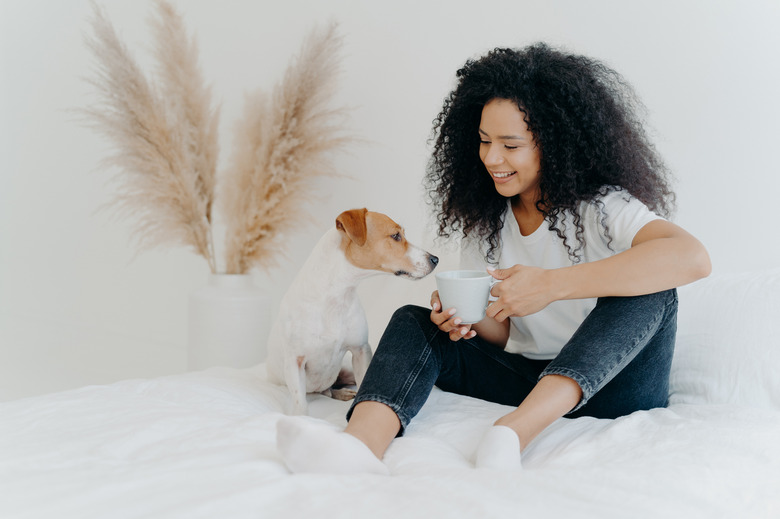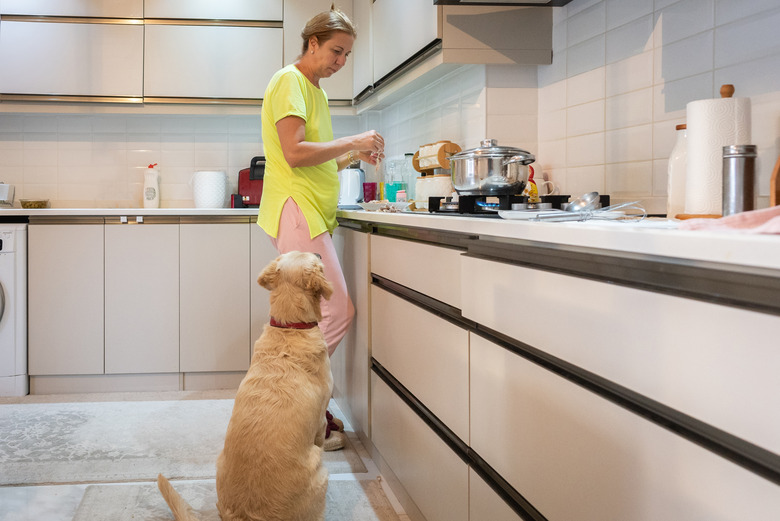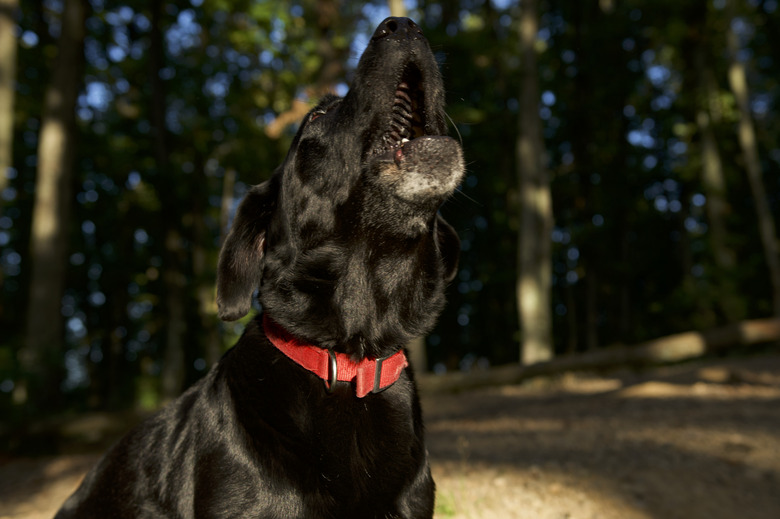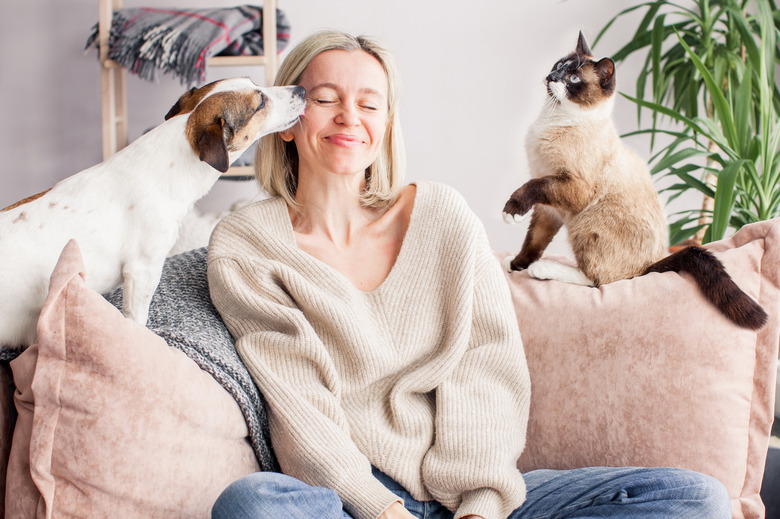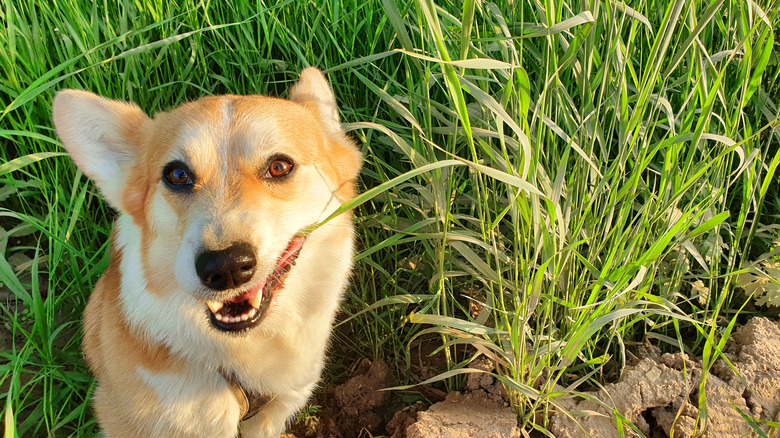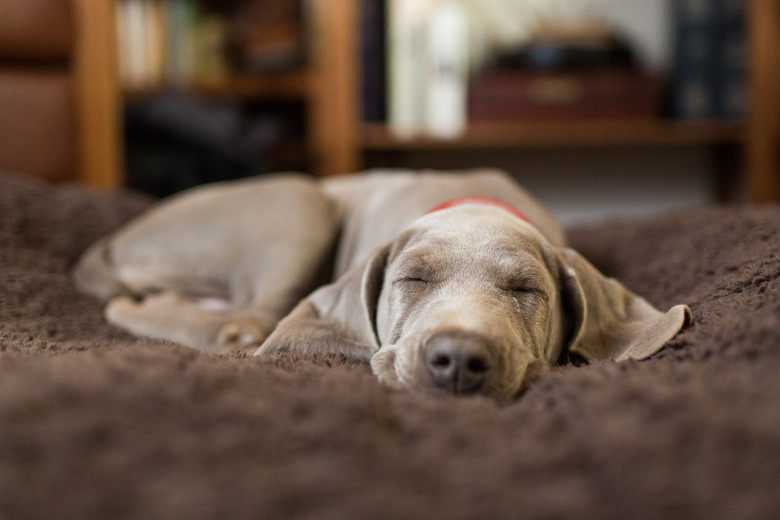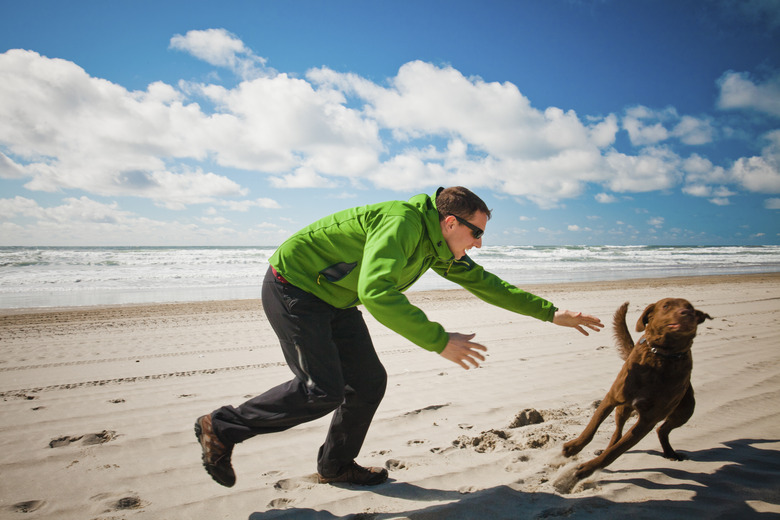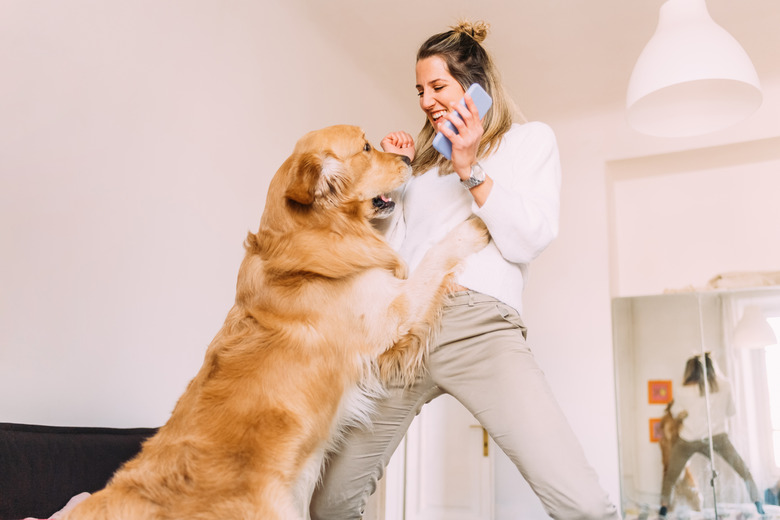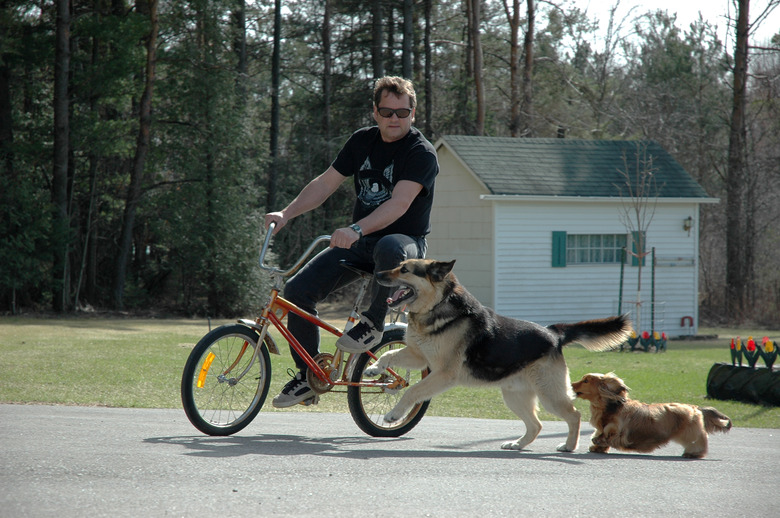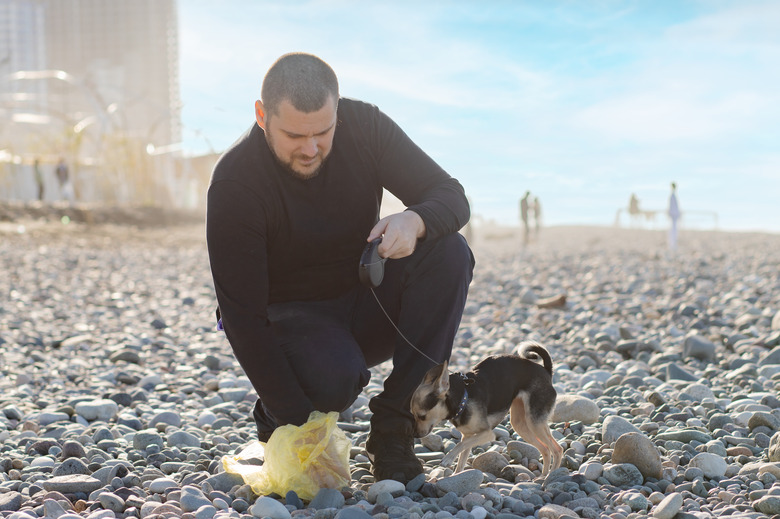Why Do My Dogs Do That? Short Answers To 10 Of Your Dog Behavior Questions
You've probably asked yourself a thousand times, "Why do my dogs do that?" And there's no shortage of different things you can insert for "that." And there's also no shortage of reasons dogs do the things they do sometimes. Our canine companions are our best friends, but their behavior doesn't always make a lot of sense to their families, and they sure do a lot of weird things! Regardless of if you have an older dog or a puppy at home, chances are good that sometimes your dog does something that confuses you. Here's the why behind some of the most common dog behavior problems.
1. Why do dogs smell human private areas?
1. Why do dogs smell human private areas?
An issue that pet parents often feel embarrassed about is if their dog is interested in sniffing their genital area, or is trying to sniff the crotch of guests coming into the home. Dogs have an amazing sense of smell and don't have the same appreciation of personal boundaries as people do. Dogs also experience most of the world through their nose and they follow interesting scents. As such, many dogs will try to sniff a person's private areas because it's an area of the body that tends to be sweaty, and so carries with it a lot of scent. These scents are interesting to our dogs and encourage them to keep sniffing.
2. Why does my dog follow me?
2. Why does my dog follow me?
If you have a dog who follows you around the house when you move from room to room, take it as a compliment! Although a dog following you around the house can be annoying for some dog guardians to feel like they can't ever do anything on their own, your dog is following you because they love you. Dogs have learned through past experiences that being near their people results in good things: food, affection, and playtime. As such, following people around is rewarded and normal behavior for dogs. Some dogs are called "velcro dogs," meaning they especially like to be close and cuddle with their caregivers at all times, while some dogs are more independent.
Your dog could be following you around to let you know it's time for a walk, or maybe even that their water bowl is empty. If your dog's body language seems frantic or distressed while following you around, that could be a sign of anxiety. If your dog seems upset as they follow you, contact your dog's veterinarian and a positive reinforcement trainer in your local area to support your dog who may be struggling with separation anxiety.
3. Why do dogs howl and bark?
3. Why do dogs howl and bark?
If your dog has a lot to say, you aren't alone! Howling, barking, whining, and other vocalizations are a natural way for dogs to communicate. Barking, howling, and other vocalizations are how our dogs communicate how they are feeling, and what they want, and get attention. Dogs are individuals and some dogs (and dog breeds) will be more vocal than others. Vocalizations of all kinds are one way that dogs can communicate and connect with people and other dogs. Try to pay attention to your dog's barks and howls and see if you can translate the meaning and figure out what your dog wants.
4. Why do dogs lick you?
4. Why do dogs lick you?
Licking is a natural behavior for dogs, and dogs lick people for a variety of reasons. In order to understand the meaning of why your dog is licking you, it's important to look more broadly at what is happening around your dog. For example, if your dog is in an uncomfortable situation, they may be licking you to release stress or to self-soothe. If you think your dog is giving kisses, you might be right that it is because your dog feels affection for you — dogs often lick their people to show affection. Your dog might also lick in order to groom and clean you. Especially if you've recently had a meal, you might notice your dog is inclined to start licking you more on your hands and face.
5. Why do dogs eat grass?
5. Why do dogs eat grass?
Many people believe that dogs eat grass because they have an upset stomach, but some studies have shown that isn't always the case. In fact, many dogs seem to enjoy the taste of grass, and the experience of foraging in the grass. Dogs are omnivores and eating grass isn't unnatural and isn't anything to worry about. Eating grass can even help with your dog's digestion because it's a great source of fiber. However, if your dog is eating excessive amounts of grass, or seems unwell you should contact your dog's veterinarian for a checkup.
6. Why do dogs turn around before lying down?
6. Why do dogs turn around before lying down?
Dogs like to be comfortable before they settle in for sleep. One way that dogs can do this is to circle or turn around before lying down. When they do this, dogs are generally nesting to make sure that their bed is arranged just like they would like it before settling in for a nap. If there's a blanket or pillows in their dog bed, they may be pushing them down or moving them into the perfect position. If they were in the wild, they may do it to tamp down grasses where they may be making their bed for the night. You can think of this behavior as the dog version of fluffing your pillows and turning down the sheets before crawling into bed. Your dog may also be circling to look around for any possible danger before settling down to sleep. Laying down and especially sleeping is a vulnerable position for dogs to be in and so some dogs might want to check around to make sure they are safe before taking a nap.
7. Why doesn't my dog come when called?
7. Why doesn't my dog come when called?
Many dog guardians struggle with getting their dogs to come when called. The lack of coming when called doesn't mean that your dog is trying to be difficult or bad. Dogs don't come when called generally because they either don't understand what "come" means at all, or more likely they haven't learned how to do this behavior with the level of distraction they are facing. For example, your dog might know how to come when called if you call them from across the house, but your dog might not be able to resist the environmental enrichment and distractions of being asked to come when called on a busy beach.
8. Why do dogs jump on people?
8. Why do dogs jump on people?
A common behavioral problem dog guardians deal with are dogs jumping up on people. Dogs who jump up usually do so because they are excited, or over aroused by the presence of a new person coming into the home, or a family member returning home. Dogs generally jump up in order to get closer to a person's face to greet you face to face. If you have a dog who jumps up, you'll want to help teach your dog calm greeting skills which will help stop and prevent this jumping up behavior.
9. Why do dogs chase cars/moving objects?
9. Why do dogs chase cars/moving objects?
If you have a dog who chases cars, bikes, or skateboards you're not alone! Many dogs have a natural desire to chase objects that move. Vehicles that are moving quickly can tap into your dog's play and prey drive which can lead them to give chase. Dogs such as sight hounds, which were developed to use their eyes and then give chase, have a strong desire to chase. Herding breeds like border collies also are very likely to chase as they were developed to visually focus on livestock. Terriers and other breeds with a strong prey drive also are likely to chase cars as they are breeds that were developed to chase and hunt. Luckily, with positive reinforcement, dog training you can teach your dog alternative behaviors to help them to refocus on you instead of chasing.
10. Why do dogs eat poop?
10. Why do dogs eat poop?
Dogs do a lot of things that seem a little disgusting to us, and some dogs develop a taste for eating poop. If you have a dog who eats their own poop or the poop of other dogs when they go out to potty, it's important to first schedule an appointment with your dog's veterinarian to rule out any underlying medical issues leading to them eating poop, including possible nutritional deficits in your dog's diet. Beyond medical conditions, dogs eat poop for a variety of reasons including because they have anxiety, or because they have developed a taste (as yucky as it might seem to us). Other dogs may try to eat poop when they get bored, and it's a sign they need more enrichment in their life like increased exercise, more (or new) chew toys, and puzzle toys.
The bottom line
The bottom line
Each dog is different, so your dog may have their own reasons for doing some of the odd things you notice. It's never a bad idea to take your behavior questions to your local dog trainer or the DVM (veterinarian) that you have a good relationship with. They can assure you that your dog's behavior is normal, or help you figure out some changes to your daily routines that may help explain the behaviors you're noticing.
